Physical Address
304 North Cardinal St.
Dorchester Center, MA 02124
Physical Address
304 North Cardinal St.
Dorchester Center, MA 02124
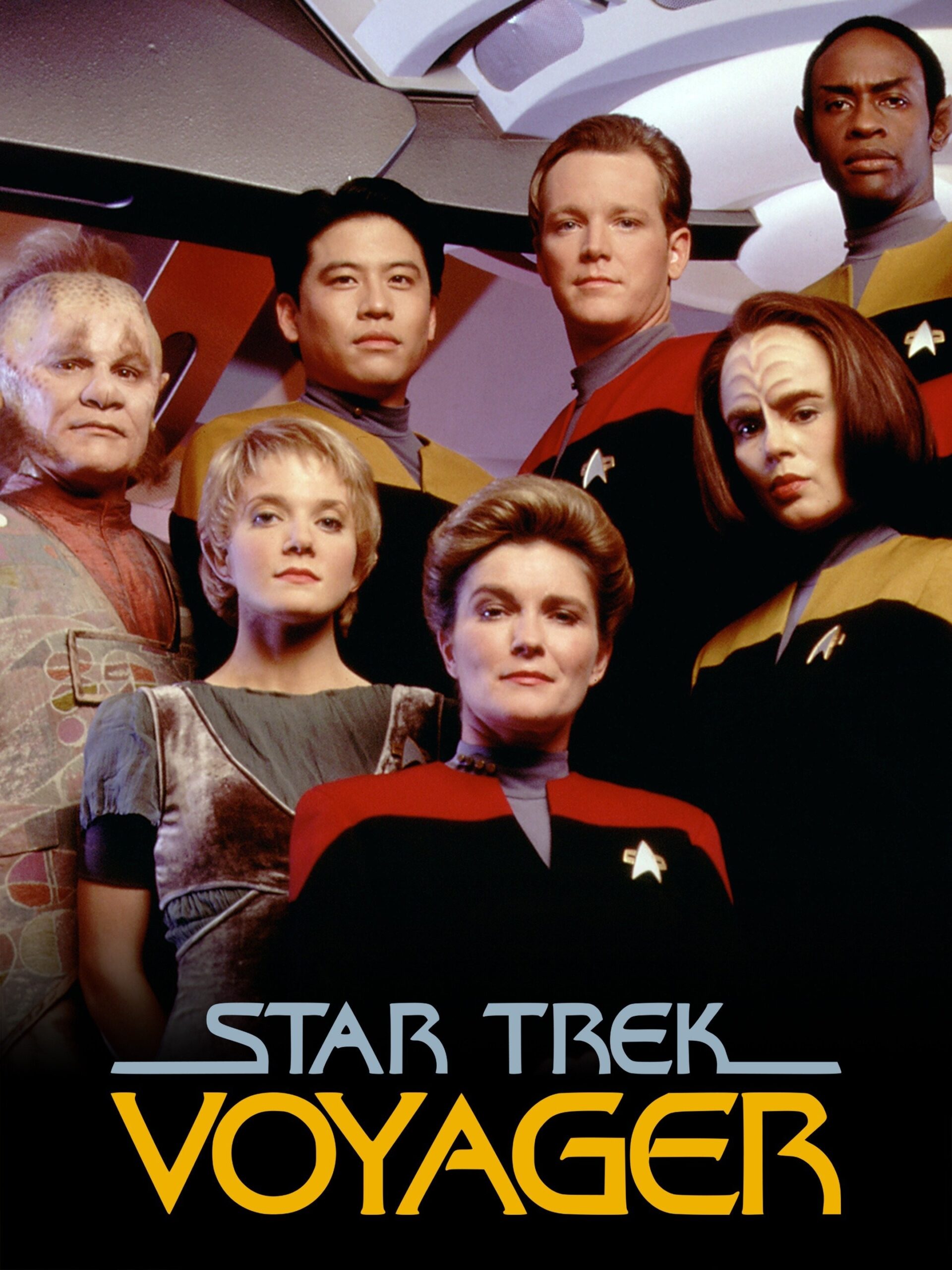
Star Trek: Voyager Season 3 marks a pivotal chapter in the acclaimed sci-fi series, delving deeper into the challenges faced by the USS Voyager crew as they journey through the uncharted Delta Quadrant. This season features an engaging cast returning for more adventures, along with new characters and gripping storylines. Fans seeking where to watch Star Trek: Voyager Season 3 have several viewing options to stream or revisit the series. This article will explore the highlights of Season 3, including a closer look at episode 1, while also reflecting on past seasons, connections to Star Trek: The Next Generation, and a glance at upcoming seasons.
Star Trek: Voyager Season 3 is often seen as a turning point where the show started to find its stride, moving away from the less interesting Kazon storylines and diving into richer character development and new adventures. The season opens dramatically with the crew stranded on a harsh planet, and the Doctor teaming up with a reformed serial killer to retake the ship—an intense and memorable start. One standout episode is “Flashback,” which cleverly ties Voyager’s story to the classic Star Trek universe by revisiting Tuvok’s early days aboard the Excelsior under Captain Sulu, blending nostalgia with fresh storytelling.
Throughout the season, Voyager explores new regions of space, encountering diverse species and facing challenges that highlight the crew’s resilience and unity. The season also marks Voyager’s first real encounter with the Borg, one of Star Trek’s most iconic adversaries, culminating in a strong season finale. While some episodes are more episodic and less connected to the overarching journey home, the season balances fun, suspense, and character moments well. It’s a solid season that helped Voyager grow into a more confident and engaging Star Trek series.
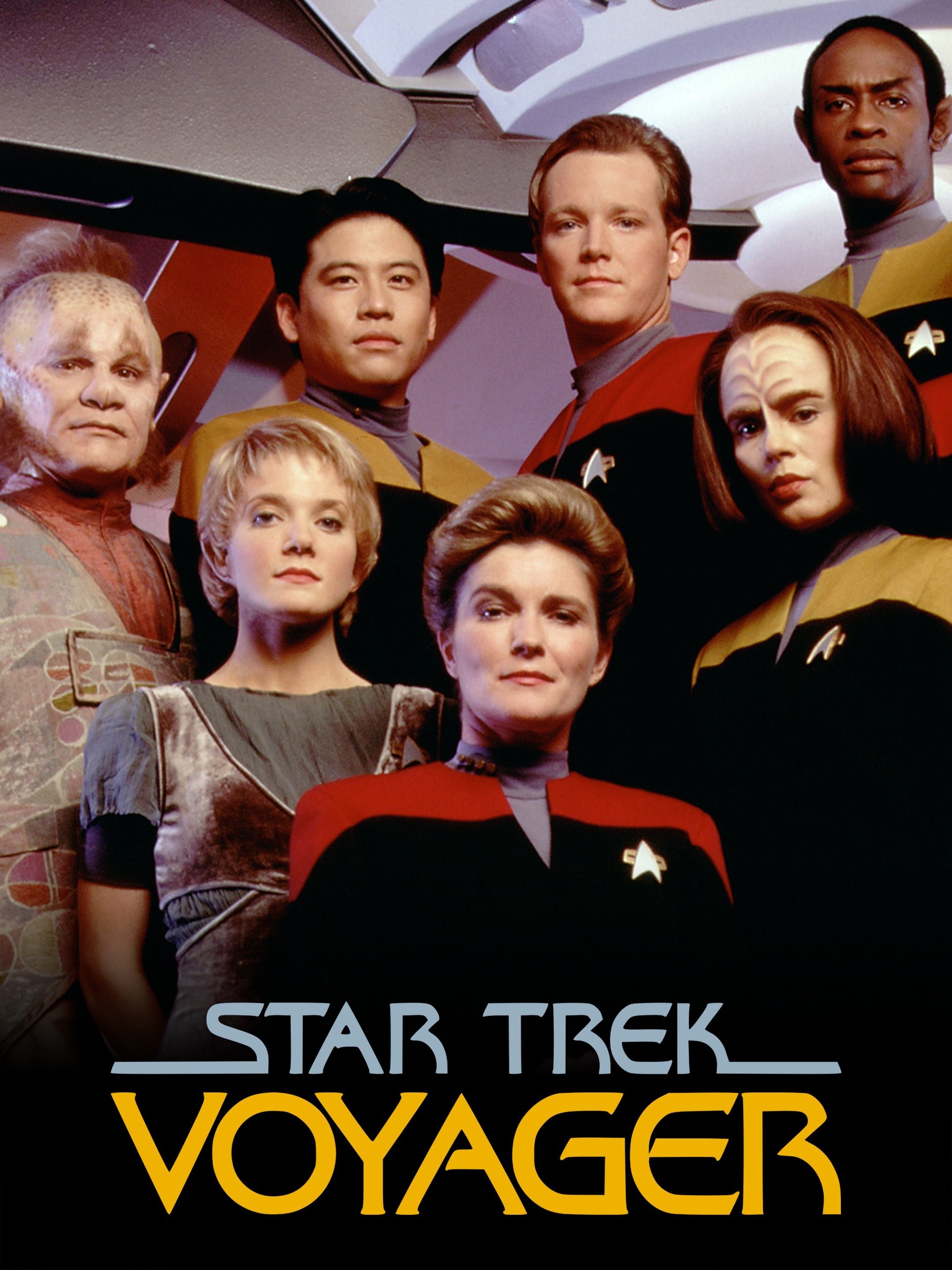
Star Trek: Voyager Season 3 features a strong ensemble cast that continues to bring the adventurous journey of the USS Voyager to life. Leading the crew is Kate Mulgrew as Captain Kathryn Janeway, the determined and resourceful commanding officer. Alongside her is Robert Beltran as Chakotay, the loyal first officer with a Maquis background, and Roxann Dawson as B’Elanna Torres, the fiery chief engineer who is part Klingon and part human. The season also includes Robert Duncan McNeill as Tom Paris, the skilled pilot with a complicated past, and Tim Russ as Tuvok, the calm and logical Vulcan chief of security.
Jennifer Lien plays Kes, the empathic Ocampan nurse and medical apprentice, who appears for the last full season before her departure. Ethan Phillips brings warmth as Neelix, the ship’s chef and morale officer, while Robert Picardo’s holographic Doctor provides medical expertise and often humor. Garrett Wang rounds out the core crew as Harry Kim, the young operations officer. Season 3 is notable for balancing these characters’ personal growth with the challenges of being stranded far from home, making it a memorable chapter in the Voyager saga.
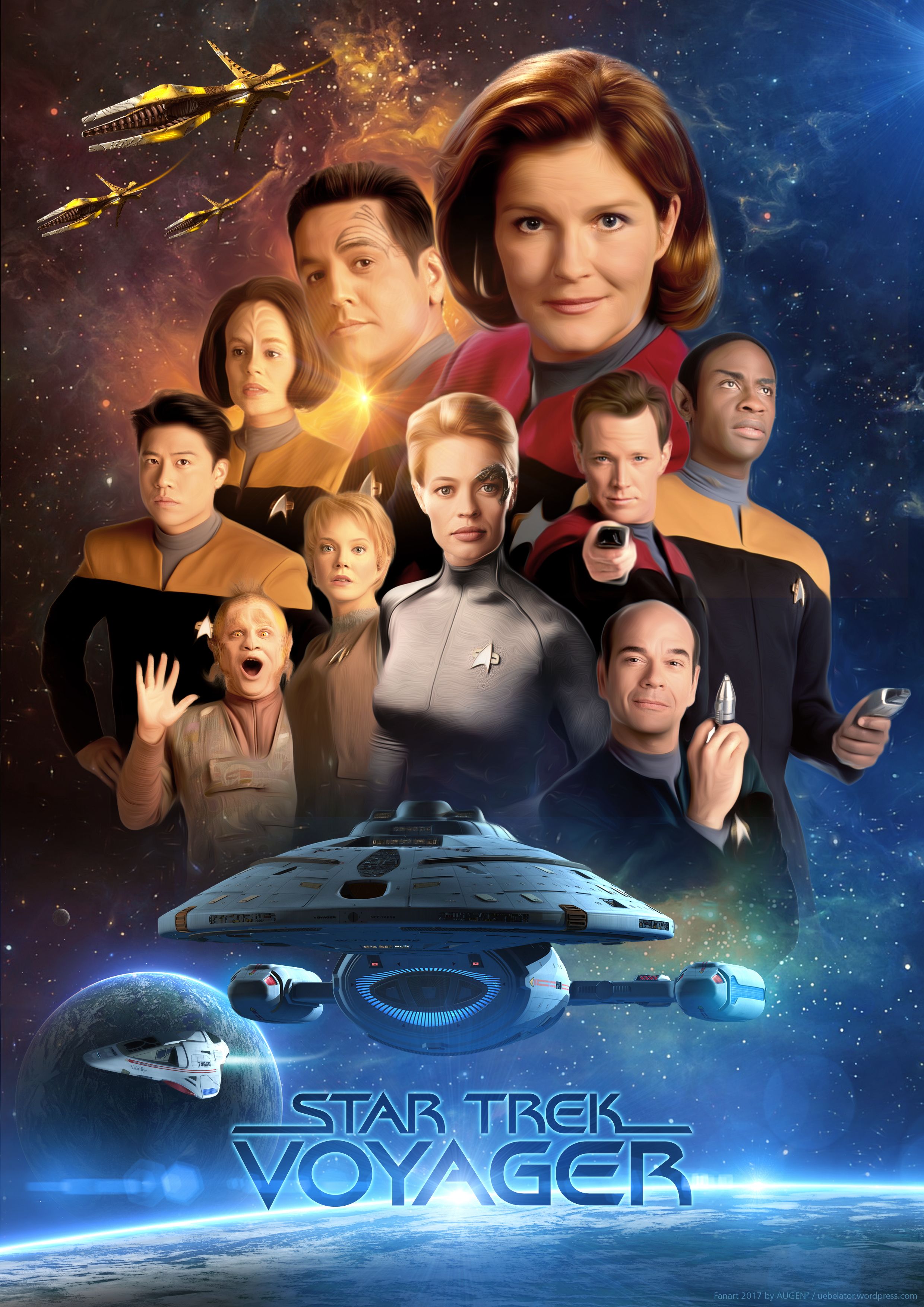
If you’re looking to watch Star Trek: Voyager Season 3, the best place to stream it right now is Paramount Plus. You can find the entire season available there, including on their Apple TV, Amazon, and Roku channels, making it super convenient no matter what device you use. If streaming isn’t your thing, you can also buy the season as a digital download on platforms like Amazon Video, Apple TV, or Fandango At Home. For those who prefer physical copies, DVDs of Season 3 are available for purchase from retailers like Barnes & Noble.
Interestingly, if you want to watch for free, Pluto TV offers Season 3 streaming at no cost, though it may include ads. Just keep in mind that there aren’t any other free streaming options currently available. So, whether you want to binge the whole season or pick your favorite episodes, Paramount Plus and Pluto TV are your go-to spots for enjoying this classic Trek adventure.
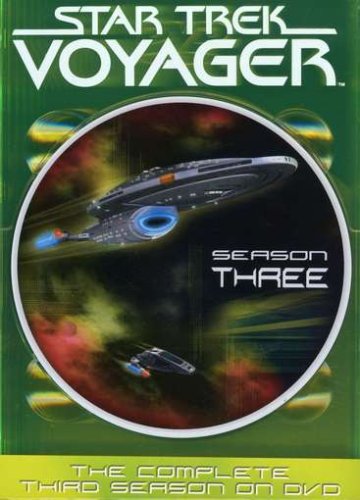
The Season 3 premiere of Star Trek: Voyager, titled “Basics, Part II,” picks up immediately after the cliffhanger from Season 2. The Voyager crew finds themselves stranded on a hostile planet with Stone Age conditions after being forced to abandon their ship. They must quickly adapt to survive, facing dangers like carnivorous predators and hostile natives. Meanwhile, back on Voyager, the Kazon, who had taken control of the ship, start experiencing mysterious problems, hinting at sabotage from within. The crew’s resourcefulness shines as they negotiate with the natives and try to reclaim their ship, all while dealing with the constant threat of danger on the planet. This episode is notable for finally moving past the Kazon storyline, which many fans felt had overstayed its welcome. It blends action, survival drama, and the classic Star Trek spirit of exploration and resilience. Though some find the premise a bit predictable, it sets the tone for the season by focusing on the crew’s unity and determination to get home.
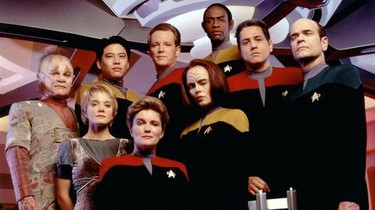
Star Trek: The Next Generation (TNG) is a beloved American sci-fi series created by Gene Roddenberry that aired from 1987 to 1994. Set about a century after the original Star Trek, it follows the adventures of the USS Enterprise-D as it explores new worlds and civilizations in the 24th century. The show features a fresh crew led by the iconic Captain Jean-Luc Picard, played by Patrick Stewart, along with memorable characters like Commander Riker, the android Data, and the Klingon Worf. What makes TNG special is its blend of thrilling space exploration with deep philosophical and ethical questions, often reflecting on humanity through its diverse characters and alien encounters.
The series is praised for its rich storytelling and character development, balancing action with thoughtful social commentary. It introduced viewers to complex moral dilemmas and fascinating futuristic technology, all while maintaining a hopeful vision of the future. With seven seasons and 178 episodes, TNG expanded the Star Trek universe and remains a cultural touchstone for fans who appreciate its mix of adventure, drama, and optimism about what lies beyond the stars.
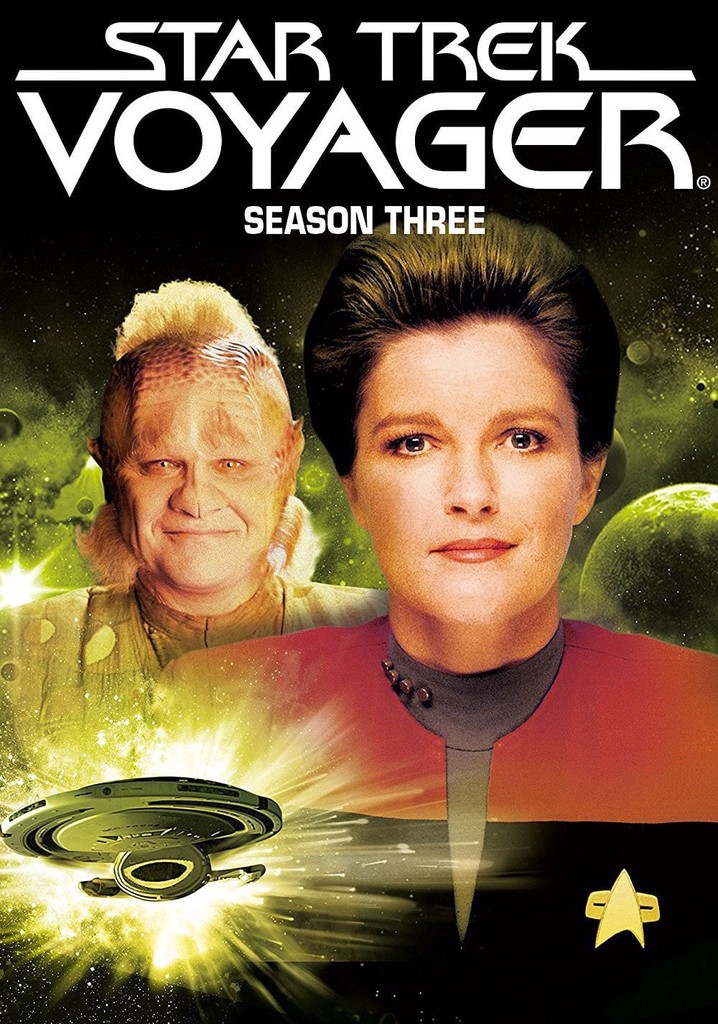
Star Trek: Voyager Season 1 introduces us to the USS Voyager, a Starfleet ship that gets stranded 70,000 light years from Earth in the Delta Quadrant while searching for a missing Maquis vessel. The pilot episode, “Caretaker,” sets the stage by bringing together the Starfleet crew and the Maquis rebels, who must now work together under Captain Kathryn Janeway’s leadership to find a way home. The season explores their struggles with this uneasy alliance, the challenges of being so far from Federation space, and encounters with new alien species like the Ocampa and hostile groups such as the Kazon.
Throughout the season, Voyager faces various dangers, from being trapped in a quantum singularity (“Parallax”) to dealing with bio-thieves who attack crew members (“Phage”). The show balances action with character development, revealing tensions and loyalties within the crew, especially between Starfleet officers and Maquis members. While the first season can feel a bit rough around the edges, it lays important groundwork for the series’ themes of survival, cooperation, and exploration far from home, making it an engaging start for fans of Star Trek’s adventurous spirit.
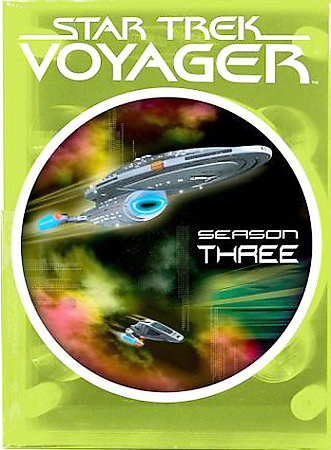
Star Trek: Voyager Season 2 really finds its footing, blending character-driven stories with the ongoing challenge of the crew trying to get home after being stranded far from Earth. This season deepens the dynamics aboard Voyager, especially with the introduction of Ensign Samantha Wildman’s child, Naomi, who quickly becomes a beloved part of the crew and forms close bonds, notably with Neelix and Seven of Nine. The tension between Starfleet and Maquis members continues to simmer, highlighted by episodes featuring the treacherous Seska, which add thrilling conflict and drama.
Season 2 also explores complex themes through standout episodes like “Resistance,” which showcases Captain Janeway’s leadership and moral strength, and “The Breach,” which tackles difficult ethical questions. The show balances action-packed moments with thoughtful storytelling, including a fresh look at Klingon culture and the Borg, revitalizing these classic Star Trek elements. While some episodes lean on familiar sci-fi tropes, the season overall strengthens the series’ identity, setting up intriguing arcs for the future and making Voyager’s long journey home feel both personal and epic.
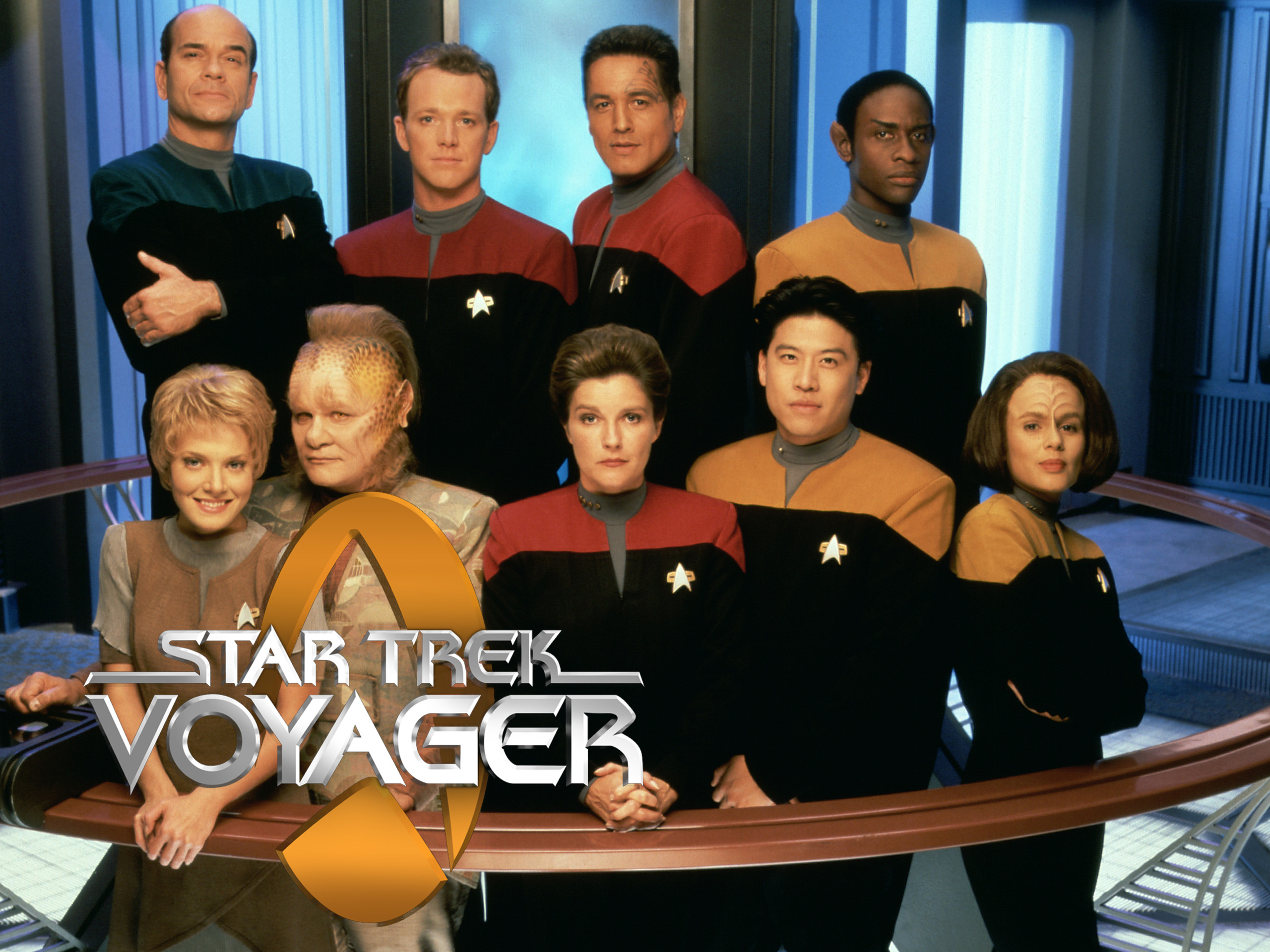
Season 4 of Star Trek: Voyager is often regarded as the show’s best and most exciting chapter. This season introduces the unforgettable character Seven of Nine, a former Borg drone whose journey toward reclaiming her humanity becomes a central theme. Her dynamic with the Doctor adds depth and some of the season’s most compelling moments, as they both explore what it means to be human. The season also features standout episodes like Scorpion, Part I & II and the intense two-part Year of Hell, which showcase high-stakes drama and strong character development.
While the season shines with thrilling storytelling and memorable arcs, it also marks the departure of Kes, whose exit felt abrupt and left some fans wanting more closure. Despite this, the season balances darker, complex stories with lighter, fun episodes, creating a satisfying mix. Captain Janeway’s leadership remains a steady anchor, guiding the crew through challenges and moral dilemmas as they continue their long journey home. Overall, Season 4 captures the spirit of Voyager at its best, blending action, emotion, and sci-fi adventure in a way that resonates with both longtime fans and newcomers.
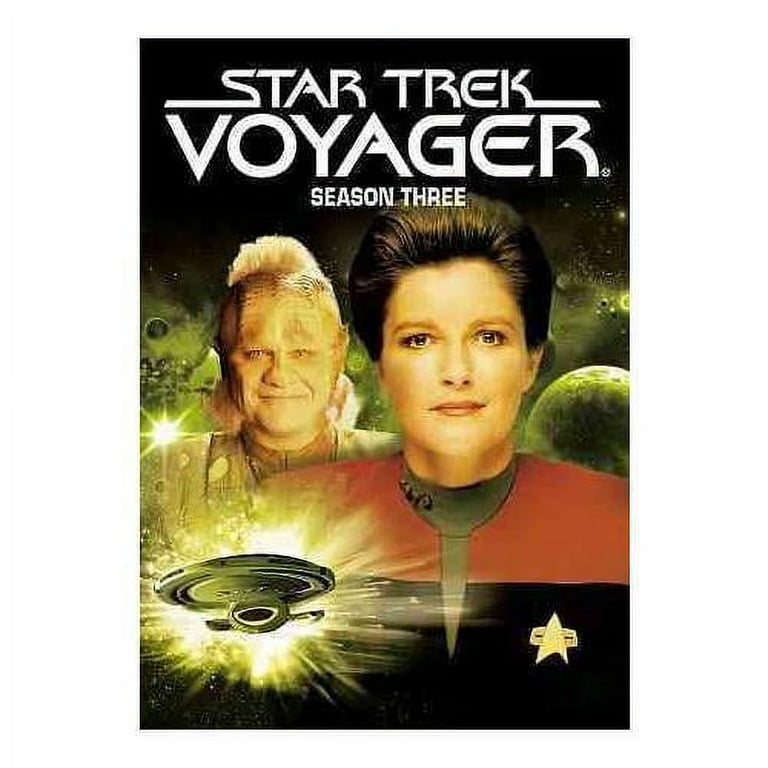
Star Trek: Voyager Season 5 continues the journey of the USS Voyager crew as they navigate the challenges of the Delta Quadrant, far from Federation space. This season is notable for its strong focus on the Borg, with several episodes like “Drone,” “Infinite Regress,” and the two-part “Dark Frontier” featuring intense encounters with this iconic cybernetic species. The Borg serve as a formidable test for Captain Janeway and her crew, adding a thrilling edge to the season.
Beyond the action, Season 5 dives deeper into character development, giving almost every main crew member a chance to shine in solo-focused episodes. The season also explores ethical and moral dilemmas, such as in “Nothing Human,” where the crew grapples with using the knowledge of a controversial Cardassian scientist to save B’Elanna Torres. Additionally, episodes like “11:59” and “Relativity” offer reflective moments, looking back at Voyager’s past and the choices that shaped their journey. Overall, Season 5 blends action, introspection, and classic Star Trek themes, making it a compelling chapter in Voyager’s saga.
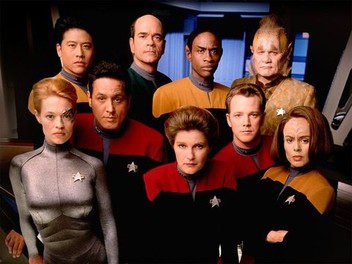
Star Trek: Voyager Season 7 is the final chapter of the series, continuing the journey of the USS Voyager crew as they strive to return home from the Delta Quadrant. This season is notable for wrapping up ongoing storylines, especially those involving the Borg and Seven of Nine. The two-part episode “Unimatrix Zero” stands out, exploring the Borg drones’ struggle for individuality and freedom, adding depth to their character beyond their usual portrayal. Captain Janeway remains a strong leader, guiding her diverse crew through challenges with determination and heart.
The season also features memorable episodes like “Critical Condition,” where the Doctor shines by cleverly navigating complex situations, showcasing his growth from a mere hologram to a beloved crew member. The return of the Hirogen in “Flesh and Blood” raises thought-provoking questions about life and survival, blending action with philosophical themes. While some fans feel the season sticks to familiar formulas without fully exploring the vast potential of Voyager’s premise, it still delivers engaging stories and character moments that honor the series’ spirit. Overall, Season 7 offers a satisfying conclusion to Voyager’s epic space adventure.
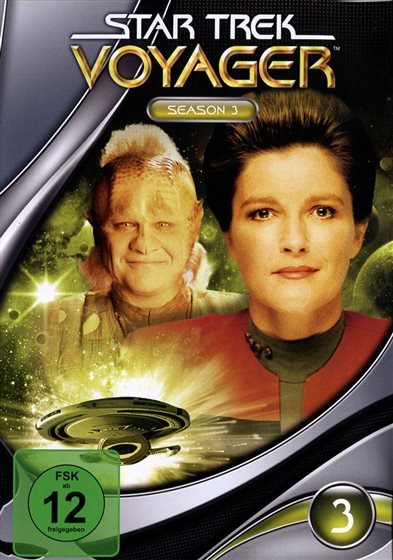
In conclusion, Season 3 of *Star Trek: Voyager* marks a pivotal moment in the series, as it explores deeper character development and complex themes such as sacrifice, morality, and the quest for identity. With standout episodes that challenge the crew’s unity and resilience, this season not only enriches individual narratives but also reinforces the show’s overarching message of hope in the face of adversity. The introduction of new alliances and nemeses furthers the dynamic storytelling, setting the stage for future adventures. Overall, Season 3 solidifies *Voyager*’s place in the Star Trek legacy, captivating audiences with its blend of exploration and ethical dilemmas.